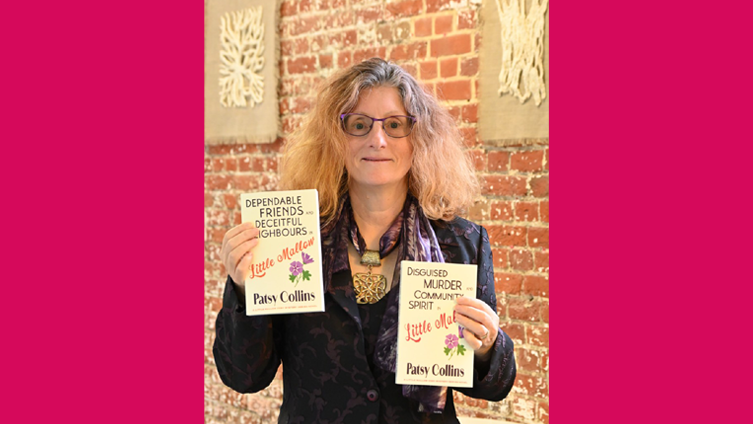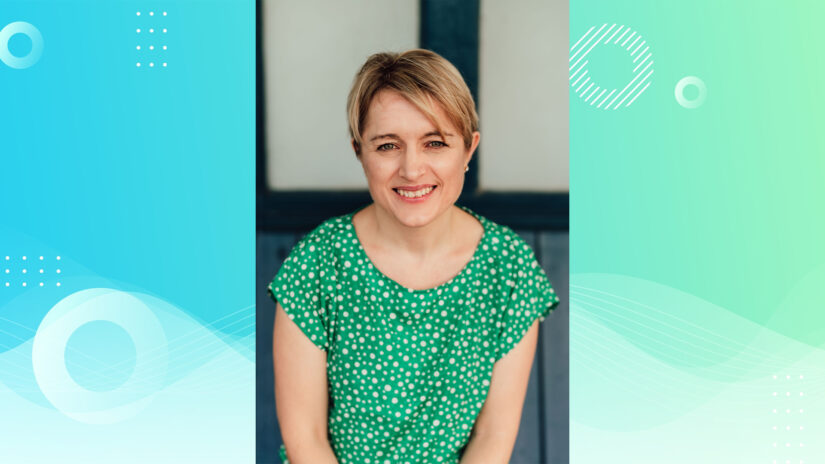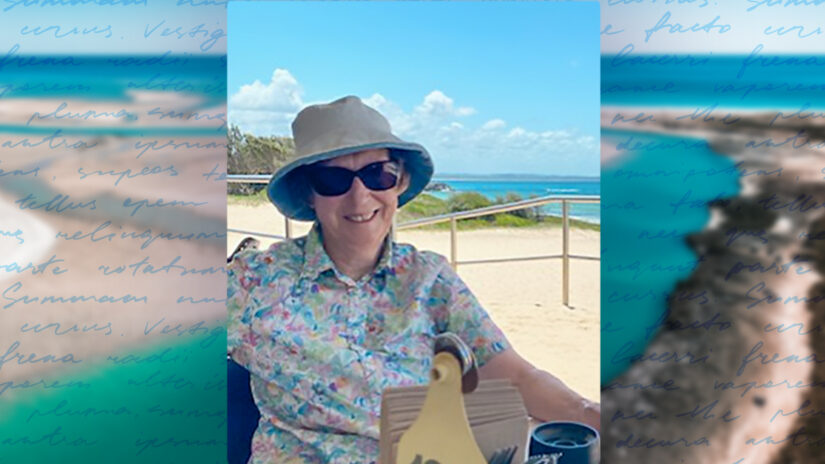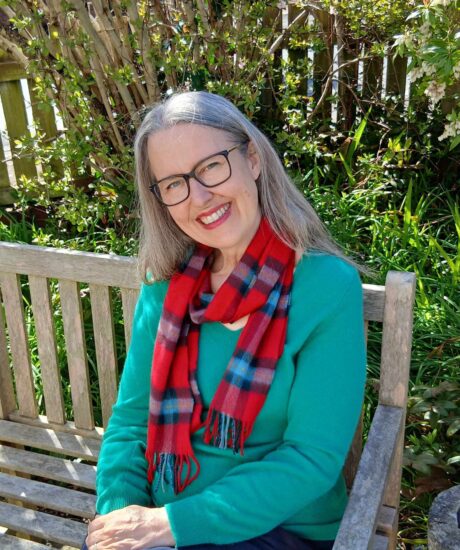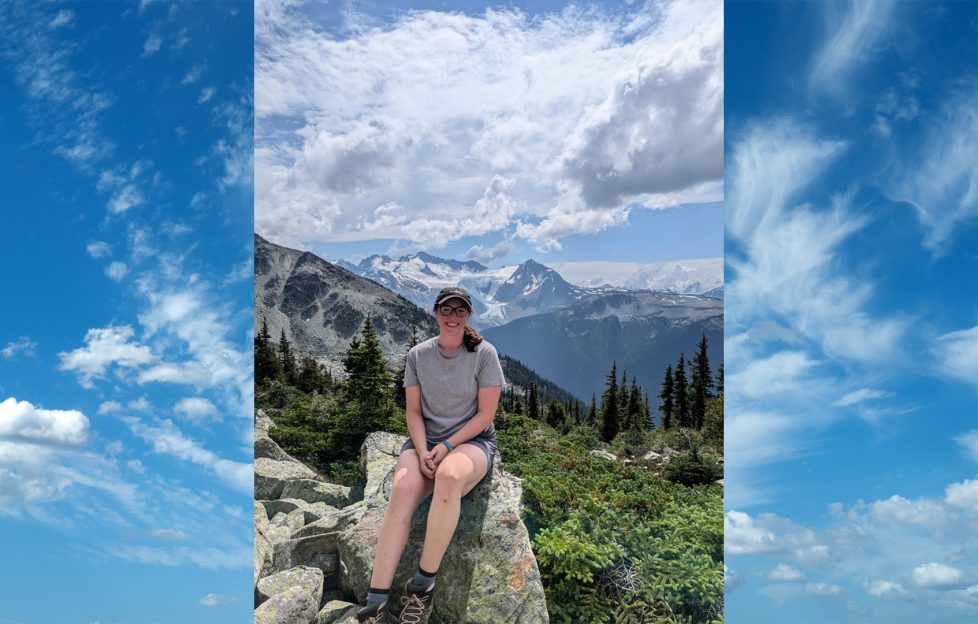
Our Writer Of The Week is Lorenne Brogan, whose story, “The Perfect Plan”, is in Special 264, on sale now.
Where did the idea come from for “The Perfect Plan”?
I always have a million ideas and different scenarios in my head at any one time. When I saw that “The People’s Friend” was doing a writing competition, I started brainstorming what scenarios and characters I could pull together to make something interesting. I don’t tend to write short stories because I find it quite difficult to get a whole story into a shorter word count.
However, I thought this would be a good challenge and I ended up really enjoying the process. The characters already existed in my mind; though originally they both worked in a restaurant together rather than being in the wedding industry. As I wrote it, the restaurant setting felt a bit too stiff so I ended up changing it.
The dialogue in your story felt natural to each of the characters. How important are characters’ personalities in your writing?
Thank you so much! I think a character’s personality is really important for my own writing, and I’m also drawn to strong characters in the books that I read. That’s not to say that plot isn’t extremely important as well. But if characters feel real, I think you engage with them so much more. Also, you can write how they would react to things much more realistically because you feel like you understand their motivations.
I love characters that make decisions that have been shaped by their experiences and their values – it really frustrates me when a character does out-of-character things for no reason just to move the story along.
What was the last book you couldn’t put down?
I’m currently reading The Stormlight Archive by Brandon Sanderson, and I was consumed by the third book, “Oathbringer”. I was up until the birds started singing with that one! I’m saving the fourth book in this series for an upcoming camping trip, and I’ll have to wait until December for the fifth one.
I also recently read “Bride” by Ali Hazelwood, which I absolutely loved. I’m a huge romance and fantasy fan, so I love “romantasy” books that bring together the best of both worlds. I’m also currently beta reading a fantasy book for an author that I’m really enjoying, too.
I often have more books on my to-be-read list than I can keep up with, but it’s hard to find the time to read everything that I want to.
Do you find you underwrite or overwrite your first drafts?
I would say that I underwrite, and I overedit. I often get bogged down with the minor details and I keep going back and tweaking things, which then prevents me from moving forward with the story, but I’m learning to just leave things be and keep writing. If there’s anything I want to remind myself of to change later, I just add an appendix of comments at the bottom of a chapter.
My priority for a first draft is to just get it on the page, so I aim to get my three main acts and any major plot points down and then I go back and develop it further, adding in the smaller details and fine-tuning things.
Notebook and pencil or laptop? Kitchen table or study? Blank wall or inspiring view?
I use everything but the kitchen sink! I always write my novels on my laptop, but I do a lot of my plot planning and character development with a notebook and pen. Sometimes I feel like I need a giant whiteboard so that I can visualise the full scope of everything I’m trying to put down in words. I also do voice memo recordings of my ideas, as it helps me to speak it out loud.
I write anywhere and everywhere that I can. I’ve finished drafts in the airport, at a coffee shop, in a library – anywhere that I can sit, I can write. I enjoy writing at home because it’s easy to make a brew or grab something to eat. If I need a change of scenery, I like to go to a coffee shop and people watch, which often helps to inspire me, too.
What’s your one top tip for aspiring writers?
Write, write, write. I think that the hardest part about writing is actually sitting down and just doing it. Even if you think about it all the time, it can be so difficult to carve out the time to actually do it, so try to make time even if it’s only thirty minutes a week.
Challenge yourself by writing things you wouldn’t normally think to. For example, write a scene from the perspective of an unimportant character in the background. How do they view the protagonist? What does the world look like around them? How do the events taking place affect them?
I once received a really useful tip from a professor at university, which was in relation to writing essays, but I apply it to writing fiction, too – after you write anything, think to yourself, “So what – what’s the point of that? Does that even matter?” This really helps me to build upon relevant things and allows me to figure out what is actually meaningful to the plot or the characters, and what is just filler.
I think it’s really important to think of yourself as a writer, and call yourself a writer, too. Even if you don’t have any published work, or you’re struggling to make the time to write, you are a writer at heart, so don’t forget that!

